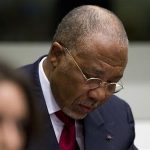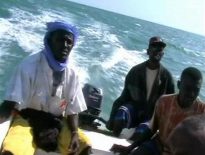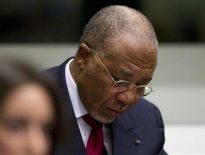By Duncan Miriri
NAIROBI (Reuters) – Africa Finance Corporation (AFC), a Lagos-based development financier, is considering potential investments worth $3 billion across sub-Saharan Africa over the next year, its chief executive said on Monday.

Created in 2007 to help increase much-needed investments in the key infrastructure, transport and heavy industries sectors in Africa, AFC – 46 percent-owned by seven west African states including Nigeria and Ghana – has already invested $500 million in projects worth a total $4 billion from Cape Verde to Zambia.
“In our sectors we see a lot of opportunities. We are currently reviewing investments totalling $3 billion across the continent. That is what our pipeline is,” Andrew Alli told Reuters in the Kenyan capital.
“These are projects from Senegal down to Mozambique. Virtually every country in sub-Sahara Africa has a power deficit so there is obviously quite a lot of opportunity in power.”
Alli said AFC – part of a growing phenomenon of Africans investing in their own continent – also looks for a commercial return on its investments, was looking to conclude the potential deals soon.
“It is almost certain that we won’t invest in all of them but we would expect to review them and close them over the course of the next year or so,” he said.
Alli, whose organisation invested $50 million in Kenyan cement firm Athi River Mining this year, praised the Kenyan government for policies aimed at encouraging private investments in the energy sector.
“We see potential for electricity investments in Kenya and particularly for renewables, both geothermal and also wind,” Alli said, adding that they were in talks with other firms they could invest in.
“We probably are looking to put in total at least another $100-$150 million into Kenya in the next 18 months if things work out correctly.”
NIGERIAN POWER
Other potential investments being evaluated include some in the Nigerian power sector where planned privatisations later this year could open up opportunities, Alli said.
AFC is also assessing investment opportunities in Senegal, Ethiopia, Ghana and Ivory Coast, where they have already secured approval to fund construction of a tall bridge in Abidjan, Alli added.
“Infrastructure is the skeleton that economic growth generally hangs,” he said.
Alli said the main risks facing investments in Africa include a slowdown in the global economy, which could cut demand for export commodities, and changes in governments that often lead to sudden shifts in policies.
“Policy reversals happen quite often. When a new government comes in they reverse policies that the previous government had put in place and businesses that had reacted to the first set of policies can be left high and dry,” he said.
This year’s coups in Mali and Guinea Bissau had also shown the possibility of political turmoil that could affect investments was also lurking in the background, he said.
AFC aims to tap emerging opportunities after years of stable economic growth across several economies, the majority of its are held by private firms from Nigeria and Kenya.
Alli, who previously headed the International Finance Corporation’s operations in Nigeria and Southern Africa, said they wanted more African nations to join the AFC as shareholders to fund the continent’s development and make a profit.
“Investments in Africa have yields that are among the highest returns of different continents,” he said.





